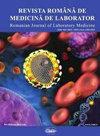Autoantibodies Against ROS-Human Serum Albumin-A Potent Immunological marker in Depressed Individuals with Smoking History
IF 0.5
4区 医学
Q4 MEDICINE, RESEARCH & EXPERIMENTAL
引用次数: 1
Abstract
Abstract Background: Depression is one of the significant problems in adults that accounts for up to five percent of cases worldwide. Methods: Volunteers were divided into eight groups, and their serum samples were tested for FBG, carbonyl contents, IFN-γ and TNF-α. Reactive oxygen species (ROS) modified human serum albumin (HSA) (ROSHSA) was used as an antigen and levels of serum autoantibodies were estimated by direct binding and inhibition ELISA in all subjects. Results: Significant biophysical structural modifications were observed in ROS-HSA with increased carbonyl contents compared to native-HSA (N-HSA). Significantly high levels of carbonyl content (2.68 ± 0.33 nmol/mg protein; p > 0.001) and pro-inflammatory cytokines IFN-γ (7.4 ± 0.61 pg/ml; p > 0.001) and TNF-α (1.47 ± 0.23 pg/ml; p > 0.001) were detected in serum samples from F-D-S. Similarly, a high level of autoantibodies against ROS-HSA was observed in females who were depressed and smokers (F-D-S) group (0.89 ± 0.07; p > 0.001) compared to males who were both depressed and smokers (M-D-S) (0.66 ± 0.049). Furthermore, inhibition ELISA results exhibited high recognition of serum autoantibodies from F-D-S subjects (78.6 ± 5.7 mean maximum percentage inhibition MMPI) compared to M-D-S (58.8 ± 5.2 MMPI) subjects. Conclusion: Incoherence, long term unchecked chronic psychological stress may cause oxidation of blood proteins, which subsequently result in structural alterations of biomolecules, thus generating new-epitopes, capable of inducing autoantibodies specific for ROS-modified proteins. These autoantibodies may be a potential marker for subjects suffering from depression to understand the state of immune imbalance.抗ros -人血清白蛋白的自身抗体-吸烟史抑郁症患者的有效免疫标志物
背景:抑郁症是成年人的重要问题之一,占全球病例的5%。方法:将志愿者分为8组,检测血清中FBG、羰基含量、IFN-γ、TNF-α的含量。以活性氧(ROS)修饰的人血清白蛋白(HSA) (ROSHSA)作为抗原,采用直接结合和抑制ELISA法测定所有受试者的血清自身抗体水平。结果:与天然hsa (N-HSA)相比,ROS-HSA的羰基含量增加,生物物理结构发生了显著变化。羰基含量显著高(2.68±0.33 nmol/mg蛋白质;p > 0.001)和促炎细胞因子IFN-γ(7.4±0.61 pg/ml;p > 0.001), TNF-α(1.47±0.23 pg/ml;p > 0.001)。同样,抑郁和吸烟女性(F-D-S)组抗ROS-HSA自身抗体水平较高(0.89±0.07;p > 0.001),而同时患有抑郁症和吸烟的男性(M-D-S)(0.66±0.049)。此外,抑制酶联免疫吸附试验结果显示,F-D-S受试者对血清自身抗体的识别率(平均最大抑制百分比MMPI为78.6±5.7)高于M-D-S受试者(58.8±5.2)。结论:不连贯、长期不受控制的慢性心理应激可能导致血液蛋白氧化,从而导致生物分子的结构改变,从而产生新的表位,能够诱导ros修饰蛋白特异性的自身抗体。这些自身抗体可能是抑郁症患者了解免疫失衡状态的潜在标志。
本文章由计算机程序翻译,如有差异,请以英文原文为准。
求助全文
约1分钟内获得全文
求助全文
来源期刊

Revista Romana De Medicina De Laborator
MEDICINE, RESEARCH & EXPERIMENTAL-
CiteScore
0.31
自引率
20.00%
发文量
43
审稿时长
>12 weeks
期刊介绍:
The aim of the journal is to publish new information that would lead to a better understanding of biological mechanisms of production of human diseases, their prevention and diagnosis as early as possible and to monitor therapy and the development of the health of patients
 求助内容:
求助内容: 应助结果提醒方式:
应助结果提醒方式:


